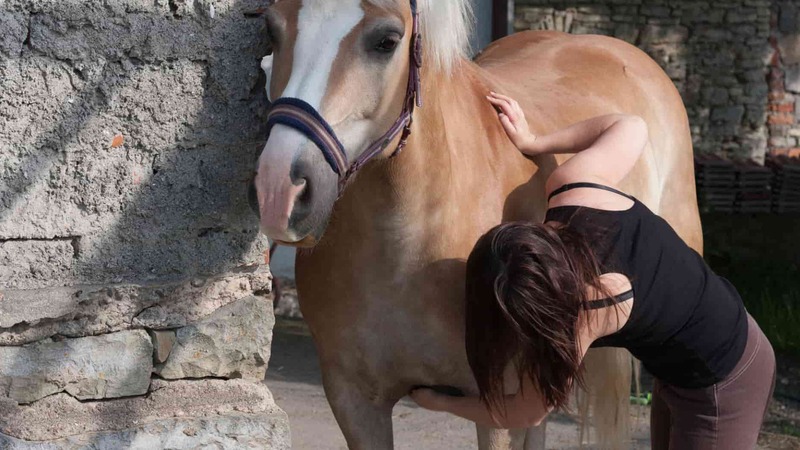In the world of equine care, a holistic approach that combines traditional veterinary practices with complementary therapies has gained significant popularity. One such therapy that has proven invaluable for horses is equine bodywork. This therapeutic modality focuses on the physical well-being of horses, addressing muscle tension, imbalances, and overall mobility. By incorporating equine bodywork into their care routine, horse owners and professionals can promote their equine companions’ overall health and performance. In this article, we will explore the benefits of equine bodywork and how it helps horses thrive.
Understanding Equine Bodywork
Equine bodywork is a comprehensive term that encompasses various techniques designed to support a horse’s musculoskeletal system. These techniques can include massage, stretching, joint mobilization, and myofascial release, among others. The primary goal of equine bodywork is to alleviate muscle tension, improve flexibility, and restore balance and harmony within the horse’s body.
Equine bodywork practitioners, often referred to as equine massage therapists or bodyworkers, undergo specialized training to understand the unique anatomy and biomechanics of horses. They possess a deep understanding of equine physiology and movement patterns, enabling them to identify and address areas of tension, restriction, or imbalance.
The Benefits of Equine Bodywork
- Improved Mobility and Performance
Horses are incredible athletes, and their performance relies heavily on their physical well-being. Equine bodywork can help improve a horse’s range of motion, flexibility, and overall mobility. By relieving muscle tension and restoring proper alignment, horses can move more freely and efficiently, enhancing their athletic potential and reducing the risk of injury.
- Pain Management and Injury Prevention
Equine bodywork plays a crucial role in pain management and injury prevention. Horses often experience muscle tension, strains, and imbalances due to their athletic demands, improper riding techniques, or conformation issues. Regular bodywork sessions can help alleviate these issues, reducing pain and discomfort while promoting healing and recovery from injuries.
- Relaxation and Stress Relief
Like humans, horses can experience stress and tension, which can negatively impact their well-being and performance. Equine bodywork techniques, such as massage and stretching, can help promote relaxation and stress relief. By releasing endorphins and reducing muscle tension, horses often exhibit a more relaxed and calm demeanor after a bodywork session.
- Enhanced Recovery and Rehabilitation
Equine bodywork is an invaluable tool in the recovery and rehabilitation process for horses. Whether recovering from an injury, illness, or undergoing intense training, bodywork can help facilitate healing and support the rehabilitation process. By improving circulation, reducing inflammation, and promoting tissue repair, equine bodywork can aid in a faster and more effective recovery.
- Improved Circulation and Lymphatic Drainage
The gentle yet effective techniques used in equine bodywork can promote improved circulation and lymphatic drainage. Increased blood flow helps deliver essential nutrients and oxygen to the muscles, while proper lymphatic drainage aids in the removal of metabolic waste products, reducing swelling and promoting overall health.
Exploring Equine Bodywork Education
As the demand for equine bodywork services continues to grow, many individuals are seeking educational opportunities to become certified equine bodyworkers or massage therapists. Several reputable online equine schools and horse training schools offer comprehensive horse courses, horse care courses, horse first aid courses, and equine bodywork courses.
These educational programs provide students with a deep understanding of equine anatomy, physiology, and biomechanics, as well as hands-on training in various bodywork techniques. Upon completion, graduates are equipped with the necessary knowledge and skills to provide safe and effective bodywork services to horses.
Choosing the Right Practitioner
When seeking equine bodywork services for your horse, it is essential to choose a qualified and experienced practitioner. Look for individuals who have completed formal education and training from reputable equine schools or horse training schools. Additionally, inquire about their experience working with horses and their areas of specialization.
It is also advisable to consult with your veterinarian before starting any complementary therapy, as they can provide valuable insights and ensure that equine bodywork is an appropriate choice for your horse’s specific condition.
Frequently Asked Questions (FAQs)
Q: Is equine bodywork safe for all horses?
A: Equine bodywork is generally considered safe when performed by a qualified and experienced practitioner. However, it is essential to consult with your veterinarian, especially if your horse has any pre-existing medical conditions or injuries.
Q: How often should equine bodywork be performed?
A: The frequency of equine bodywork sessions can vary depending on the horse’s age, activity level, and specific needs. Many practitioners recommend regular sessions, ranging from weekly to monthly, to maintain optimal physical condition.
Q: Can equine bodywork be combined with other therapies?
A: Absolutely! Equine bodywork can be an excellent complementary therapy to traditional veterinary care, as well as other modalities such as chiropractic, acupuncture, or herbal remedies. A holistic approach can often yield the best results for a horse’s overall well-being.
Conclusion:
Equine bodywork is a valuable and increasingly popular modality in the world of equine care. By addressing muscle tension, improving mobility, and promoting overall physical well-being, equine bodywork can significantly benefit horses of all ages and disciplines. Whether you are a horse owner, trainer, or professional in the equine industry, understanding the benefits of equine bodywork and seeking the services of qualified practitioners can contribute to the longevity and performance of your equine companions. With the right education and expertise, equine bodywork offers a holistic approach to supporting the health and happiness of these magnificent animals.
